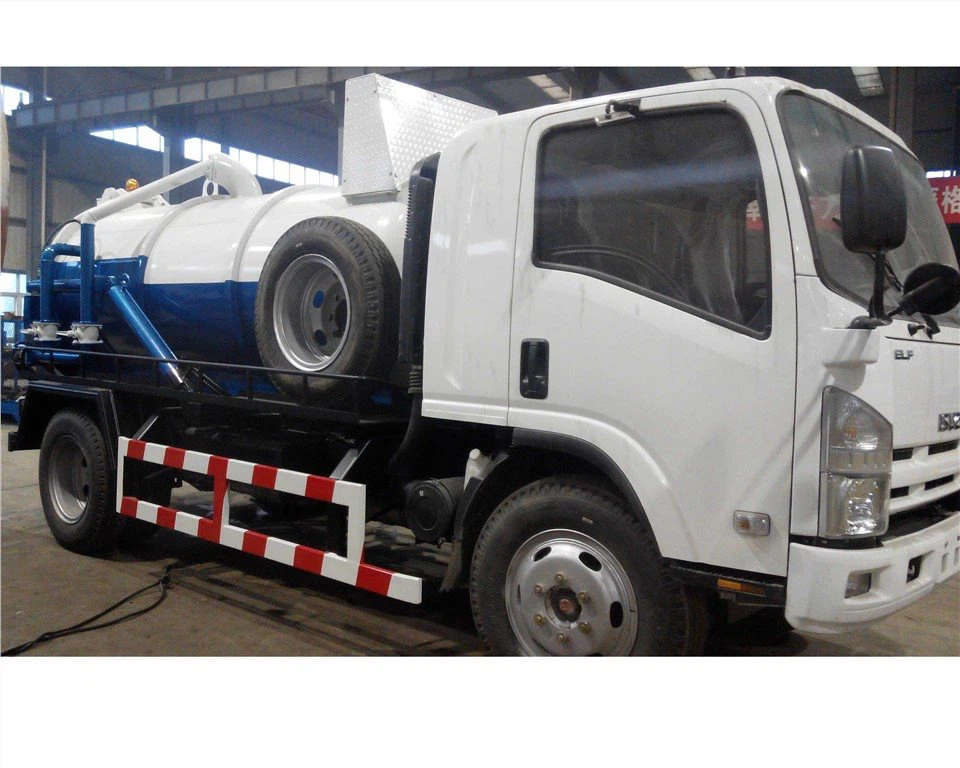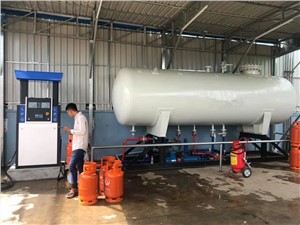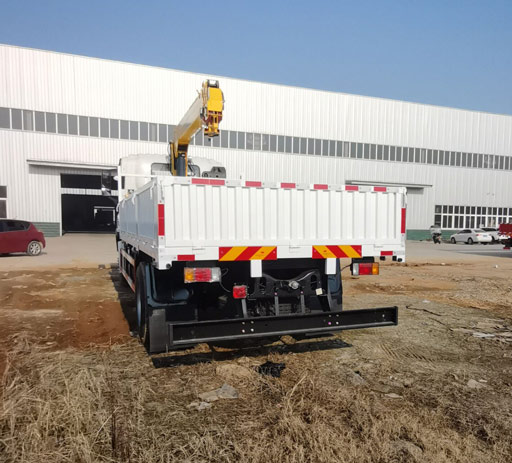Everything You Need to Know About a 10,000 Gallon Water Truck

When it comes to transporting and distributing large volumes of water, a 10,000 gallon water truck is an essential piece of equipment for many industries. From construction sites to agricultural enterprises, having a reliable water truck can make a significant difference in efficiency and productivity. In this article, we will explore everything you need to know about 10,000 gallon water trucks, including their uses, features, and maintenance tips.
Understanding the Basics of a 10,000 Gallon Water Truck
A water truck is designed for transporting and distributing water for various purposes. The 10,000 gallon capacity is a commonly used size due to its versatility, allowing for large water supplies without requiring multiple trips. These trucks can be adapted for different applications, including dust control, irrigation, and firefighting.
What Is a Water Truck?
A water truck is a vehicle equipped with a large tank that holds water. It’s typically built on a standard truck chassis and can be fitted with additional features such as pumps and hoses for efficient water distribution. The 10,000 gallon water truck is ideal for heavy-duty applications and is favored by contractors and municipal agencies alike.
Key Features of a 10,000 Gallon Water Truck
- Tank Material: Tanks are often made from durable materials like steel or polyethylene.
- Pump System: Includes a pump for transferring water, often with a flow rate of up to 500 gallons per minute.
- Hoses and Nozzles: Equipped with a variety of hoses and nozzles for different spraying and distribution needs.
- Spray System: Many trucks feature a spray nozzle system for even distribution.
- Water Meter: Allows operators to measure the volume of water dispensed.
Applications of a 10,000 Gallon Water Truck
The versatility of a 10,000 gallon water truck makes it suitable for various applications. Here are some common uses:
1. Construction Sites
Construction sites generate a significant amount of dust and debris, which can impact air quality and site safety. A 10,000 gallon water truck helps control dust by spraying water on unpaved roads and work areas.
2. Agriculture

In agricultural settings, water trucks are used for irrigation, especially in areas where accessible water is limited. They can efficiently distribute water to crops, ensuring optimal growth and yield.
3. Firefighting
A 10,000 gallon water truck can be a critical resource for firefighting efforts, particularly in rural areas. It can be used to fill up smaller firefighting equipment or to directly combat small fires.
4. Dust Control
Beyond construction, dust control is needed in various industrial activities. Water trucks can be deployed in mining operations, landfills, and other locations to minimize dust that could cause health hazards.
5. Road Maintenance
Municipalities often utilize water trucks for road maintenance. Water helps to settle the dust and provides moisture to asphalt during repairs or new installations.
6. Landscaping and Golf Courses
Landscape maintenance and golf course upkeep rely on consistent irrigation. A 10,000 gallon water truck can supply sufficient water to maintain turf and other plant life.
Buying a 10,000 Gallon Water Truck: Key Considerations
Investing in a 10,000 gallon water truck is a significant decision. Here are some factors to consider when making your purchase:
1. Purpose and Usage
Determine the primary use of the water truck. Consider whether you need it for construction, agricultural purposes, or firefighting. This will influence your choice of specifications.
2. Tank Material
The material of the water tank is essential for durability. Steel tanks are strong but heavier, while polyethylene tanks are lighter and resistant to corrosion.
3. Pump Capacity
Evaluate the pump’s flow rate and pressure to ensure it meets your operating needs. A higher flow rate is beneficial for faster filling and dispensing.
4. Truck Size and Maneuverability
Consider the truck’s size and whether it can maneuver efficiently in the locations you plan to use it. A larger truck may require more space for operation.
5. Budget
Establish your budget upfront. Prices for new water trucks can vary depending on the features, size, and manufacturer. Consider both initial costs and ongoing maintenance expenses.
6. Compliance and Regulations
Ensure that the water truck complies with local regulations regarding water transport and environmental impact. This may include permits or licenses for water extraction.
Maintenance Tips for Your Water Truck
1. Regular Cleaning
Clean the tank regularly to prevent algae and bacteria buildup. Use non-toxic cleaning agents to ensure water quality remains high.
2. Check Pump Functionality
Regularly test the pump to ensure it operates at optimal efficiency. Look for leaks or any performance issues.
3. Inspect Hoses and Connections
Inspect hoses for wear, cracks, or leaks. Damaged hoses should be replaced immediately to prevent water loss and ensure safety during operation.
4. Monitor Fluid Levels
Keep an eye on the hydraulic fluid levels and check for any leaks. Proper fluid levels are essential for the smooth operation of the pump system.
5. Follow Manufacturer Guidelines
Always refer to the manufacturer’s maintenance guidelines for specific procedures and schedules to follow.
Cost Analysis of Owning a 10,000 Gallon Water Truck
Understanding the costs associated with owning a water truck is essential for budgeting. Here’s a summary of potential costs:
| Cost Category | Estimated Cost |
|---|---|
| Purchase Price | $30,000 – $100,000 |
| Maintenance and Repairs | $1,000 – $3,000/year |
| Insurance | $500 – $2,000/year |
| Fuel Costs | $3,000 – $5,000/year |
| Permits and Licensing | Varies by location |
Practical Tips for Using a 10,000 Gallon Water Truck

To maximize the effectiveness of your water truck, consider the following practical tips:
1. Schedule Regular Routes
If using the truck for irrigation or dust control, create a schedule to ensure timely applications. This can avoid shortages and optimize resource use.
2. Train Operators
Ensure operators are adequately trained in safety protocols and efficient operation of the truck. This reduces the risk of accidents and mistakes.
3. Use GPS for Route Optimization
Utilize GPS technology to plan the most efficient routes, saving fuel and time while decreasing wear and tear on the vehicle.
4. Monitor Weather Conditions
Be mindful of the weather when planning water applications. Scheduling around rainfall can conserve water resources and reduce unnecessary trips.
Frequently Asked Questions (FAQs)
1. What Is the Average Capacity of a Water Truck?

Water trucks can range in capacity, but a 10,000 gallon truck is among the larger sizes used for industrial and commercial applications.
2. How Much Does a 10,000 Gallon Water Truck Weigh?
The weight can vary based on the truck model and materials, but a filled 10,000 gallon water truck can weigh between 30,000 and 33,000 pounds.
3. Can a 10,000 Gallon Water Truck Be Used for Potable Water?
Yes, as long as it is made of food-grade material and meets health regulations. Always check with local authorities before using for potable water.
4. How Do You Maintain Water Quality in the Tank?
Regular cleaning and using a non-toxic cleaning agent can help maintain water quality and prevent contamination.
5. Can I Rent a 10,000 Gallon Water Truck?
Yes, many equipment rental companies offer 10,000 gallon water trucks for short-term use, which may be economically favorable for temporary projects.
6. What Are the Common Issues with Water Trucks?
Common issues include leaks, pump malfunctions, and wear on hoses. Regular maintenance checks can prevent most of these problems.
